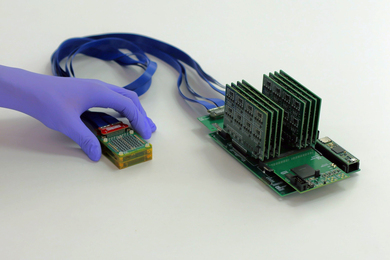The following is an account from the 1896 Olympics by Thomas Pelham
Curtis 94', MIT hurdler, who won the 110-meter hurdles that year. (As
recorded in the July 24, 1924 issue of Technology Review)
"...Only two athletic bodies in this country sent representative teams.
One was sent by Princeton University; the other was sent by the Boston
Athletic Association. The decision to send this latter team was reached
only at the last moment and our little party, of which I was a member,
left Boston less than two weeks before the opening event in which we
were to compete. Such a condition today would, of course, be
impossible. Months and months are given over to preparing the various
athletes, entries are made far ahead of the time of competition, and
the games, themselves besides being of much larger proportions, are
also carried on over a much longer period of time.
"...Although the steamer [they traveled in to the games] was carrying
its full complement of passengers (and of course deck room was at a
premium), we were accorded every possible facility for practicing and
keeping in training. The rear deck was cleared daily at about 3 p.m.
and for an hour or more we practiced our different events. On the
morning of the eighth day we reached Gibraltar, where we were to have
four hours ashore, so while the other passengers hired carriages,
guides, etc., and spent their time in sight-seeing, we took our spiked
shoes and other paraphernalia, and visited the racing park belonging to
the English officers stationed there.
"By these means we were able to keep in good condition during the entire
voyage, and on landing at Naples, a few days later, we were all in the
best of training. Training, however, for athletic sports was hardly at
the same standard in any of the European countries that it had reached
in the United States."





